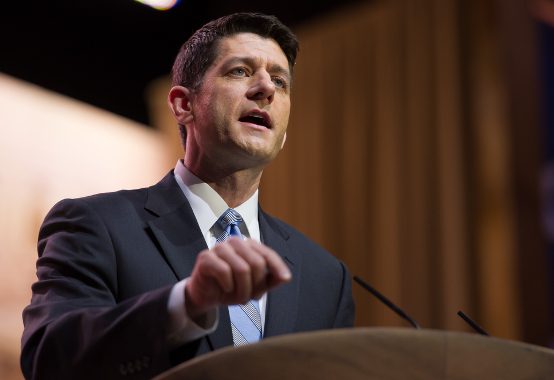The Makings of a Deal on the Fiscal Cliff: Romney-Ryan Without Rate Cuts
One of the flashpoints of the now-concluded presidential race was over how Mitt Romney would offset his proposal to cut taxes $3.6 trillion (over 10 years) below the current Bush rates. Publicly, the campaign served up only the vaguest assurances that “the math works”; that they would limit or eliminate tax deductions and the wealthy wouldn’t benefit as handsomely as they do today. In the second debate, President Obama derided this proposal as a “sketchy idea.” Yet this quite large pot of money has been hiding in plain view on Capitol Hill since the days when Dan Rostenkowski reigned over the Ways & Means Committee.
Bruce Bartlett’s book The Benefit and the Burden is a great primer on this area of fiscal policy. The big kahunas are the exclusion for employer-provided health insurance (costing $434 billion in income and payroll taxes annually), the mortgage-interest deduction (about $100 billion), and the deduction for charitable contributions ($53 billion). Other tax expenditures include the deduction for property taxes and, Bartlett notes, the tax-free status of Medicare (since seniors consume more than they pay into the system over their lifetime, you can look at those benefits as a kind of income).
If all the Bush tax cuts expire, the federal coffers would swell by about $4 trillion. No one I know realistically expects that a majority of congressional Democrats, let alone Republicans, wants to let that happen. Ideally, Obama would like to see the top marginal tax rate rise from 35% to 39%. The House GOP has signaled it’s not ready to budge on those rates. So we’re left with that big pot of tax expenditures, which, via the Romney-Ryan campaign, Republicans have tacitly committed to tackling.
It’s actually a far bigger pot than the Bush tax cuts: All told, tax expenditures account for a whopping $13 trillion over 10 years.
So here’s what I’m thinking could be the outline of a fiscal cliff-averting deal. Call it the Romney-Ryan plan without the rate cuts. It would give Obama the revenue he wants, and Republicans could at least claim not to have raised tax rates.
Perhaps I’m overly optimistic, but I think it’s a deal that both sides could live with. Even more important, I think it would be good for the economy. As Bartlett argues: “The goal of tax reform should be to create neutrality to the greatest extent possible. Let businesses and families make economic decisions without being biased or even pressured to do one thing rather than another, such as buy rather than rent a home, just because the tax code makes it worthwhile.”
Barack Obama and Speaker John Boehner are the two most important people in America right now. My prediction: they will do the right thing, and we will get a deal.
